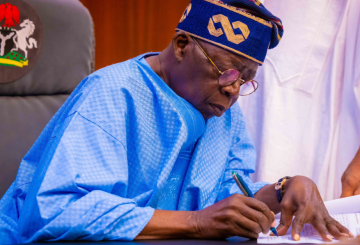The Federal Government blamed flooded highways in Kogi State for the disaster, which prevented tankers from bringing Premium Motor Spirit, more commonly known as fuel, into Abuja on Thursday.
This information was revealed at a time when marketers of crude oil and other business owners in the sector demanded a review of administrative fines in the midstream and downstream oil sectors that was more lenient.
At the closing ceremony of a stakeholder consultation forum on midstream and downstream petroleum regulations that the Nigeria Midstream and Downstream Petroleum Regulatory Authority hosted in Abuja, the call was made public.
The NMDPRA explained that the floods in Kogi State had flooded several of the highways that trucks used to transport PMS to Abuja, which was one of the reasons why gasoline lines had started to form again in Abuja.
Petrol lines reappeared in Abuja on Monday evening and grew longer, which was a difficult scenario for drivers in the capital city.
“The NMDPRA wishes to state that the fuel queues are caused by unprecedented flooding in Lokoja, Kogi State, which has submerged a greater part of the city and grounded all vehicular movements,” the agency said in a statement issued in Abuja.
Additionally, “This unfortunately has affected the distribution of petroleum products to the Federal Capital Territory, Abuja and environs. As part of measures to mitigate the situation, trucking via alternative routes is currently ongoing.
“The authority assures the public that there are sufficient petroleum products inland. Consequently, the general public is advised to avoid panic buying at fuel stations as the NMDPRA is working assiduously with relevant stakeholders and government agencies to ensure product availability across the country.”
As it promised to maintain smooth supply and distribution of petroleum products across the country, it encouraged oil marketers to stop hoarding the commodity in this context so as not to put Nigerians through hardship.
At a stakeholders’ workshop in Abuja, oil marketers and other midstream and downstream companies urged the federal government to examine and reduce administrative fines and fees for the sector.
Separate presentations presented at the forum’s closing ceremony outlined their stance. However, the government gave the stakeholders assurances through the NMDPRA that it would look into their complaints.
Farouk Ahmed, the chief executive officer of the NMDPRA, announced during the event that the organization had issued two draft regulations and noted that stakeholders had provided feedback on the regulations throughout the three-day meeting.
According to Ahmed, who was represented by the Executive Director, Distribution Systems, Storage and Retailing Infrastructure, NMDPRA, Ogbugo Ukoha, “We had our first engagements few months ago, during which we covered 10 draft regulations. As we committed during that particular event, we’ve also published two more draft regulations.”
Speaking further, he said, “The two draft regulations include the Midstream and Downstream Petroleum Safety Regulations and the Petroleum Measurement Regulations. These regulations are the subject of this gathering.
“We discussed them in more detail, as the essence of this engagement is for us to receive stakeholders’ feedback in relation to the drafts. The feedback will add value to the drafts and make it richer.
“It is the authority’s objective that it must be guided by the collaboration that we have with operators in the market. So, we consider as very important the feedback we receive from operators in the industry.”





